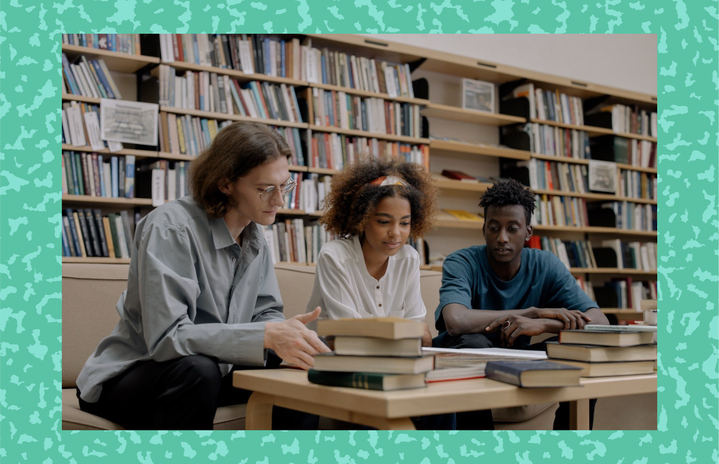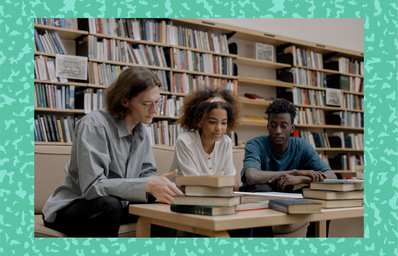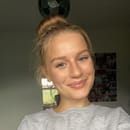This summer I spent six incredible weeks in South Africa teaching English in a township as part of the Warwick in Africa programme – which needs to be shouted about more! This truly is a once-in-a-lifetime experience, so read on to see why you should be applying to take part in 2024. From exploring the beautiful country, to working in an inspiring school, to making new life-long friends, there is so much to say!
Whilst everyone on the programme is a Warwick University student, my group of six on placement in Stellenbosch all came from different courses and had never met before the programme began. We were split into three Maths teachers and three English teachers and, during the training week, found out that we would be teaching at a secondary school in a township called Kayamandi. During that week our heads became full of grammar lessons and debating which tourist attraction we should visit first!
Whilst we had some great days trips (and even a weekend safari!), we were there first and foremost to teach. And so, if you apply, make sure you are passionate about teaching! Before the placement, we were already talking about evening plans to Cape Town beaches and walks to local vineyards, but we soon realised that most evenings needed to be spent marking essays and planning lessons. We taught classes of forty to sixty students and so you can imagine the time it takes to mark six classes’ essays! But the joy when we compared the work we received from students at the beginning of week one to the end of week six made it so, so worth it. The students were incredibly bright and many of them completely fluent in English – when I first heard their amazing English I became worried that I wouldn’t have the skills to teach them much, but their grammar and public speaking really flourished during the placement.
Many of the students were engaged and they had the idea that ‘education is the key to success’ ingrained in them – they worked this sentence into every example they could! However, we did experience some challenges during our time out there. For some students, there was a language barrier and, unfortunately, those who needed extra support did not receive it and would simply be passed in each grade no matter their end of year results. This resulted in extremely different ability levels all in one classroom together. Whilst most of the Grade 10 students were fluent in English, there were students in my Grade 11 classes who had no English at all and, when I asked their respective teachers about this large discrepancy, the general answer was that they struggled in most subjects and there was no real support in place. The classes were already extremely large and there were so many disturbances to lessons on a daily basis – every other day there seemed to be last minute timetable changes and classes would be moved about the school easily losing fifteen minutes of a forty-five minute period! So, it is understandable that the one class teacher, with no assistant or other support, is not able to adhere to every child’s needs. But it was still so sad to see and the varying levels of ability within a single classroom was a real challenge.
As part of our training week, alongside guidance for how to teach, we discussed what it would be like living within a different culture, however, we did not have country specific discussions. Whilst we were all relatively well educated about apartheid beforehand, I think all of us were more shocked by the ongoing segregation in South Africa than we had expected to be. Our first day was just spent walking around Stellenbosch University, all exhausted from our very long journeys. Walking around the campus felt, in many ways, just like walking around Warwick Uni campus and, whilst it felt diverse, it was predominately white. The next day we had our first day teaching in the township within Stellenbosch and, despite knowing factually what we would see, it was shocking nonetheless. The surroundings instantly transformed from the rather grand colonial style buildings, to ones of simple corrugated iron; simultaneously, the population went from majority white to almost all black. We spent the next six weeks learning so much about the history of the country and the ongoing challenges they face and I wish there was still a large world focus on the issues that need to be addressed there.
Whilst working in the school and learning from the students was one of the best ways to understand the country, the District Six Museum was so informative and I would say anyone visiting Cape Town should have it at the top of their to-do list! Our tour guide was a woman who had grown up herself in District Six and had been forcibly moved to a “coloured” area. She described the old District Six as the dream community to live in: her Christian friends went with her to the Mosque, she went with them to Church, she spoke of Jewish and Indian shopkeepers who served everyone and trusted people to pay for items they needed immediately later in the week. That respect, diversity, kindness and trust was destroyed by apartheid. She told us many moving stories about life under the horrific apartheid laws, but ended with a positive story about her beautiful family and showed us a picture of her own children, who under apartheid laws would not legally be allowed to live together, and called them her very own “nationality rainbow”. Despite her positivity about life now, there is still much segregation as apartheid was so heartbreakingly successful with its geographical and institutionalised racism which is proving so extremely difficult to undo.
Alongside the teaching and exploring the country, as part of the Warwick in Africa programme we had to find another project to work on within the school with a small budget to help us accomplish it. This is such an exciting part of the programme as you have the freedom to work on anything you are passionate about supporting; for us, this was the library. We spent hours most days (sometimes including the weekend!) clearing the rubbish from the library (many, many bin bags’ worth!), deep cleaning and then organising their many books. They had quite a good collection of books so it was such a shame the library had become more of a storage room than something useable. The students were very happy about this project and would often stay after school to help us out and, as they had invested their time, we were confident that they would continue to look after and use it once we’d left. We assigned library prefects at the end of our placement and have been receiving updates from their teachers about how they’ve been using the library since we’ve left which has been such happy news for us. This was absolutely a project of love whilst we were out there and we are so pleased with how it went.
Whilst the programme is predominately about helping others, it also gave us an amazing sense of purpose this summer and is something which we frequently talk about with each other reflecting on our many, many favourite moments. We are missing the students, the teachers and the country so much! Although there were a few lows, as it is a long placement and quite a lot of hard work, we had an amazing time and it is certainly a summer that we will never forget. Check out this link for more information https://warwick.ac.uk/giving/projects/wia/about/ and good luck if you apply!


